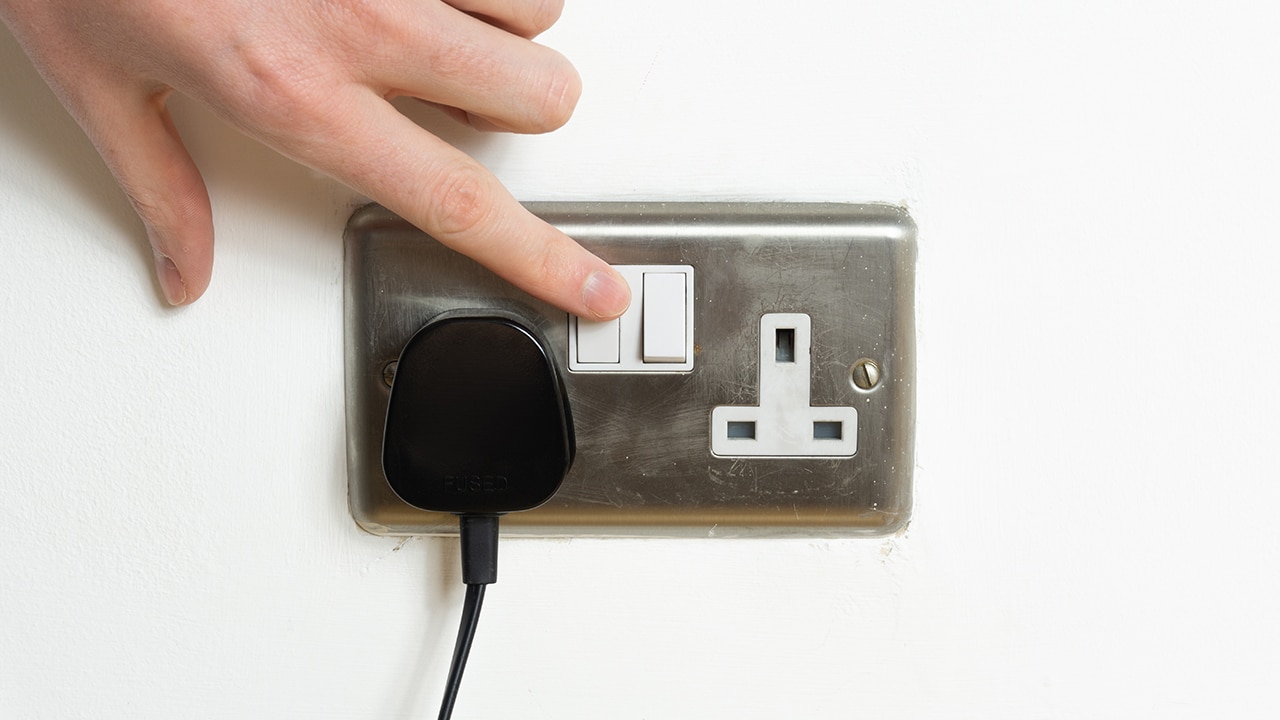Disclosure: FMB Home Picks is committed to delivering independent advice and reviews on home products and services. When you purchase through links on our site, we may earn an affiliate commission. Learn more Contact us.
Paying the ever-rising bills can seem impossible, and with winter getting closer, families are worried. We’ve found several great ideas to cut your electric bill

Leaving appliances such as TVs on standby can cost you a lot of money over the course of a year. (Image credit: Adobe)
While it’s tempting to just leave any electrical appliances on standby, going that extra step and switching off at the wall socket will save you money. Up to £120 a year can be lost by leaving items on standby for no outlay whatsoever.

Upgrading your lightbulbs to LED bulbs is one of the easiest ways to make your home more energy-efficient. (Image credit: Adobe)
Using up to 90% less energy than conventional bulbs, changing to energy efficient LED light bulbs might cost more to buy initially – between £5 and £10 per bulb, but will make a big difference in the long term. Lasting more than 12 times longer than halogen bulbs, changing to more efficient bulbs can make an annual saving of at least £100.

Running a washing machine half full is inefficient. (Image credit Adobe)
The washing machine and dishwasher are some of the most energy-hungry household appliances, so running them half full is inefficient. Wait until you have a full load before switching on. Be careful, though, not to overfill the washing machine, as this can result in clothes retaining soap suds which may cause skin irritations. Using the washing machine and dishwasher more efficiently can save you £100 per year.
Another way to save energy is to use a lower temperature wash cycle wherever possible. Most of us wash our clothes at 40°C as standard, but this can be reserved for removing stains, and a 20°C cotton cycle used for regular washing. According to a study by consumer guide Which? this can reduce the energy used by up to 62% and save you around £20 annually.
Try to avoid using the tumble dryer – another heavy energy drain. Using your dryer twice a week can, on average, cost you between £50 and £123 a year, depending on the appliance’s energy rating.

Keeping your fridge more than two-thirds full will help it chill the food more efficiently and save money. (Image credit: Adobe)
By keeping the temperature of your fridge and freezer at around 4°C and −18°C, respectively, you can shave pounds off your annual energy bill. Taking up around 7% of your household’s total energy consumption, a fridge freezer can cost over £80 to run yearly.
Another money-saving trick is keeping your fridge and freezer at least two-thirds full. They are more efficient at keeping the contents cold if there’s little spare space inside. It goes without saying that opening the doors as little as possible also maintains the low temperature.
It’s also worth checking that the door seals are intact, and looking around the back of your fridge, give the condensing coils – a metal grid on the reverse of your appliance, a quick clean. If covered in dust, as most are, your fridge will be around 25% less efficient.

Switching to a four or five-minute shower can save about £70 a year. (Image credit: Adobe)
By taking shorter showers and swapping baths for showers, your household will save energy and water. The experts at the Energy Saving Trust say that keeping to a four or five-minute shower can save about £70, and if you have a water meter installed, this saving is increased by another £60.

In spite of our changeable weather, then climate in the UK is perfect for solar power. (image credit: Adobe)
According to Money Saving Expert’s Martin Lewis, investing in solar panels saves you money on your energy bill, and by selling the excess energy back to the National Grid, you can earn money too.
Even on the UK’s dull winter days, solar panels still generate plenty of power to run your home, and although they can be expensive to install, the return on investment can be huge. For a typical household, the savings can be up to £400 annually, and it’s possible to earn around £110 selling the excess energy.
You may even be entitled to help from the Government’s Green Deal loan scheme towards the cost of installing the solar panels.

Double glazing will save on your energy bill and add value to your house. (Image credit: Adobe)
Double glazing provides effective insulation for your windows, and if you use electricity to heat your home, will save you money this winter.
Up to 18% of a property’s internal heat is lost through poorly glazed and fitted windows, and by investing in double glazing, the savings can be as much as £195 a year. They can also increase the resale value of your home by up to 10%.
By implementing these suggestions, your household could save an astounding £1,185 annually from the cost of your energy bill. However, please bear in mind, these figures are estimates and your the savings your household can make depend on its energy use.
| Action | Initial outlay | Approximate Saving |
|---|---|---|
| Turning off at the plug | Free | £120 |
| Using your kitchen appliances more efficiently | Free | £160-£260 |
| Adjusting your fridge and freezer temperatures | Free | £40 |
| Swapping baths for showers | Free | £70 |
| Switching to energy efficient light bulbs | Medium | £100 |
| Install solar panels | High | £400 |
| Invest in double glazing | High | £195 |
| Total saving | £1,085-£1,185 |
Read our guide to the Cost of Living payments to find out if you’re eligible and when you’ll get your payment; learn how to make your home more energy efficient in time for winter; and if you’re struggling to pay your energy bills, then we have a guide on where to seek help with your energy bills.